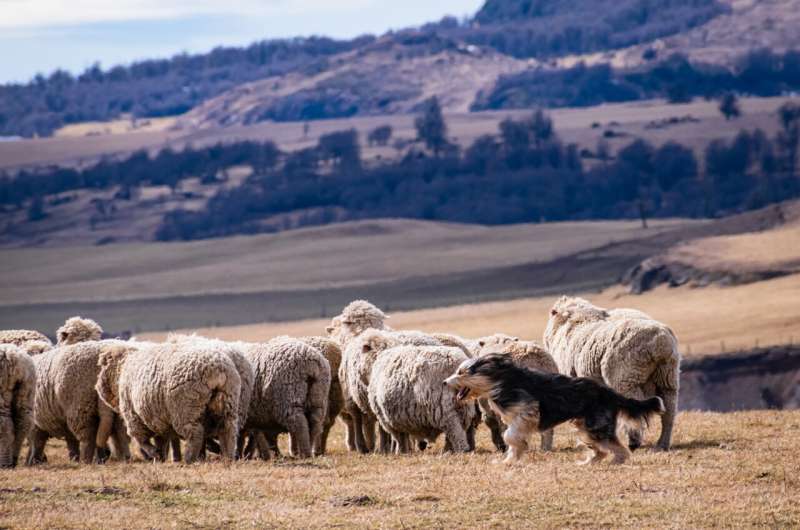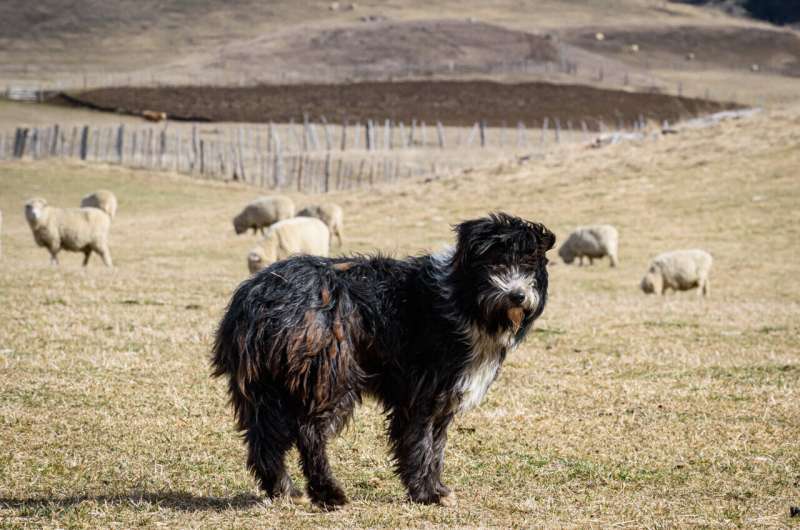Patagonian sheepdogs are the closest living representative of the ancestor of sheepdog from UK

Modern day Patagonian sheepdogs are the closest living relative to now-extinct varieties of herding dogs of Victorian era Britain, according to a study publishing April 28th in the open-access journal PLOS Genetics by Natasha Barrios at the Universidad Austral de Chile, Elaine Ostrander at the National Institutes of Health, US, and colleagues.
European settlers colonizing new lands often took their working dogs with them, and this shared history is reflected in the genome of modern dog breeds. The Patagonian sheepdog is a distinct variety from southern Chile and Argentina, thought to have been introduced by European colonists in the late 1800s. But it is not recognized as a formal breed and its relationship to modern herding dogs is poorly understood. Researchers genotyped 159 Patagonian sheepdogs from Chile and the Chubut province in Argentina and used published data for 175 recognized domestic dog breeds and two wild dog species to create a phylogenetic tree. They found that Patagonian Sheepdogs are most closely related to Border collies and Australian kelpies and share a common ancestor with modern herding breeds from the UK around 150 years ago. They identified distinct populations in the north and south of Patagonia, separated by the Patagonian ice fields. Northern populations are more genetically similar to Border collies, while southern populations are more closely related to the Australian kelpie.
This population structure mirrors the pattern and timing of European colonization of the region, in which Scottish settlers first migrated from the Falkland Islands to southern Chile in 1877, before later moving north into the Aysén region and Argentina. The first sheepdogs were likely introduced to Patagonia before the formalization of dog breeds in the late 1800s, suggesting that modern Patagonian sheepdogs are the closest living representatives of the foundational sheepdog—the ancestor of modern herding breeds from the UK—and probably look and behave quite similarly, the authors say.

Barrios adds, “Using a variety of genomic approaches, we ascertain the relationship between this dog population and modern herding breeds. We propose that the Patagonian sheepdog is the closest living representative of the common ancestor of modern UK herding breeds. These findings, in turn, increase our understanding of human migratory events at the time.”
Long-term stress in dogs linked to the owner-dog relationship
Patagonian sheepdog: Genomic analyses trace the footprints of extinct UK herding dogs to South America, PLoS Genetics (2022). DOI: 10.1371/journal.pgen.1010160
Citation:
Patagonian sheepdogs are the closest living representative of the ancestor of sheepdog from UK (2022, April 28)
retrieved 29 April 2022
from https://phys.org/news/2022-04-patagonian-sheepdogs-closest-ancestor-sheepdog.html
This document is subject to copyright. Apart from any fair dealing for the purpose of private study or research, no
part may be reproduced without the written permission. The content is provided for information purposes only.
For all the latest Science News Click Here
For the latest news and updates, follow us on Google News.

